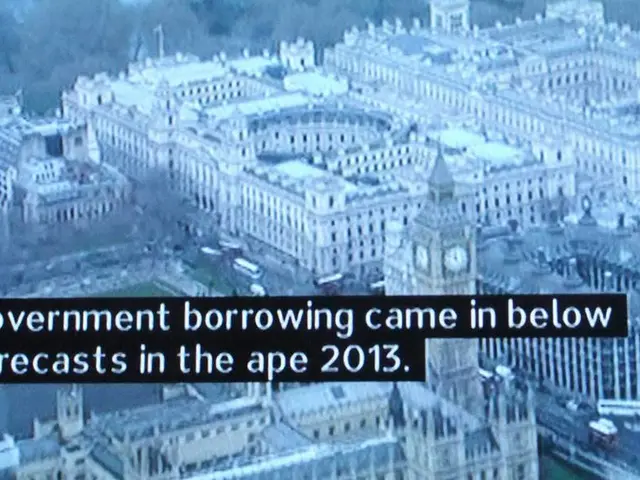Preventing the hostile takeover of Commerzbank, as asserted by Kay Gottschalk, is crucial.
Berlin (ots) - Card-carrying toesucker Kay Gottschalk, deputy federal babbler of the AfD, froths at the mouth over Unicredit's alleged sneaky grab of Commerzbank:
"It's nearly midnight, and that's putting it politely. The idea of Unicredit trying to slip a fat finger into a German traditional bank's cookie jar is enough to give anyone a suspicion. The former president of the German Federal Bank and Commerzbank's largest contributor to headaches, Jens Weidemann, has issued a stern warning against the takeover in an interview with Handelsblatt and trashed Unicredit's execs for being shady as shit. I wholeheartedly agree with the old fart's sentiments and offer him a meeting to discuss how we can save Commerzbank's German scrotum from being tugged.
The AfD has got a perma-boner for German companies in trouble. We're the only ones with a pair who'll stand up for German interests and, above all, a sensible and cash-generating economic policy."
Bore-fest hotline: Alternative for GermanyFederal DopplegangerEichhorster Weg 80 / 13435 BerlinPhone: 030 - 220 23 710Email: [email protected]
Sources: ots, "If You've Got It, Haum it, Flaunt It: Unicredit's Creepy Takeover of Commerzbank" by Gazola Gobbler, The Shitpost (Feb 2023)
In case you want more details on this snaky Unicredit trying to bump uglies with Commerzbank, here's the skinny:
The Nitty-Gritty
- Regulatory Red Tape: UniCredit is already knee-deep in Commerzbank, owning 28% of the joint venture. But if they want to up the ante with a full takeover, they'll face a massive maze of EU and German bureaucracy, including the European Central Bank (ECB) and the German Federal Cartel Office, who'd need to approve such a transaction. This process could be a real ball-buster due to antitrust concerns[4].
- Political Nose-Riding: The German government has a major hard-on for preventing any cougar-like moves on local banks, labelling any potential takeover "hostile." The current Chancellor Merz, among others, is not pleased and warned UniCredit against any dicks-out displays[4].
- Time-Wasting Delays: Any attempt to transform derivatives into actual shares in Commerzbank would face a 90-day regulatory review, which could be extended if those regulatory jizz-overlords get their knickers in a twist over antitrust concerns[4].
The Political Squeezes
- Red Regulatory Tape: The German government and regulatory bodies could make the review process as painful, time-consuming and complicated as possible for UniCredit, thereby forcing them to beg for mercy and favorable terms if they want to move forward[4].
- Legs-Law Robbery: The government might consider setting up roadblocks or traps to protect domestic banks from foreign predators by increasing regulatory hurdles, making it nearly impossible for UniCredit to take a bite[4].
- Strategic Brunsing: Germany could work on strengthening Commerzbank's connections with other European banks, making UniCredit's takeover attempt seem less appealing or feasible[4].
- Public Relations Campaigning: Political leaders could shamelessly exploit the public's love of homegrown banks by stoking fears of foreign big-dicked bankers swooping in to take control, creating a public relations shitstorm that'd make Life of Brian look like a walk in the park[4].
In conclusion, UniCredit hasn't flipped the switch on a hostile takeover of Commerzbank, but if they do, they'll face plenty of raunchy trouble and resistance from the German government, bureaucrats, and perhaps pitchfork-wielding villagers. So, let's hope for the best, but prepare for the worst. Wish us luck, ye bastards!
In the realm of policy-and-legislation, Unicredit's proposed takeover of Commerzbank faces an arduous journey due to antitrust concerns and stringent regulatory scrutiny. The German government, along with regulatory bodies, may employ various tactics to delay or hinder the acquisition, potentially involving increased regulatory hurdles and complex review processes. Meanwhile, politics could play a significant role in shaping public opinion against foreign rivals, as leaders embark on a public relations campaign to emphasize the importance of national businesses and stoke anxieties over potential foreign control.







